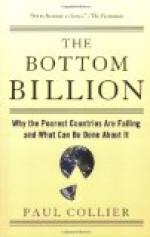Subdue them to the useful and the good.
Most blameless is he, centred in the sphere
Of common duties, decent not to fail
In offices of tenderness, and pay
Meet adoration to my household gods,
When I am gone. He works his work, I mine.
There lies the port; the vessel puffs her sail;
There gloom the dark, broad seas. My mariners,
Souls that have toil’d, and wrought, and thought with me,—
That ever with a frolic welcome took
The thunder and the sunshine, and opposed
Free hearts, free foreheads,—you and I are old;
Old age hath yet his honor and his toil.
Death closes all; but something ere the end,
Some work of noble note, may yet be done,
Not unbecoming men that strove with Gods.
The lights begin to twinkle from the rocks;
The long day wanes; the slow moon climbs; the deep
Moans round with many voices. Come, my friends.
’Tis not too late to seek a newer world.
Push off, and sitting well in order smite
The sounding furrows; for my purpose holds
To sail beyond the sunset, and the baths
Of all the western stars, until I die.
It may be that the gulfs will wash us down;
It may be we shall touch the Happy Isles,
And see the great Achilles, whom we knew.
Tho’ much is taken, much abides; and tho’
We are not now that strength which in old days
Moved earth and heaven, that which we are, we are,—
One equal temper of heroic hearts,
Made weak by time and fate, but strong in will
To strive, to seek, to find, and not to yield.
Alfred Tennyson.
PREPAREDNESS
For all your days prepare,
And meet them ever alike:
When you are the anvil, bear—
When you are the hammer, strike.
Edwin Markham.
From “The Gates of Paradise, and Other Poems.”
THE WISDOM OF FOLLY
“Jog on, jog on, the footpath way,
And merrily hent the stile-a:
A merry heart goes all the day,
Your sad tires in a mile-a.”
Shakespeare’s lilting stanza conveys a great truth—the power of cheerfulness to give impetus and endurance. The a at the end of lines is merely an addition in singing; the word hent means take.
The cynics say that every rose
Is guarded by a thorn which grows
To spoil our posies;
But I no pleasure therefore lack;
I keep my hands behind my back
When smelling roses.
Though outwardly a gloomy shroud
The inner half of every cloud
Is bright and shining:
I therefore turn my clouds about,
And always wear them inside out
To show the lining.
My modus operandi this—
To take no heed of what’s amiss;
And not a bad one;
Because, as Shakespeare used to say,
A merry heart goes twice the way
That tires a sad one.




